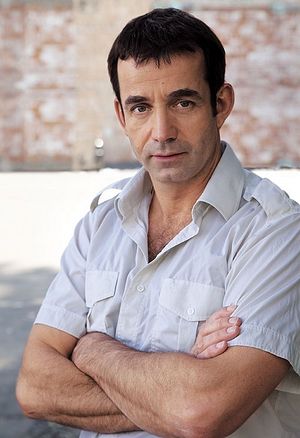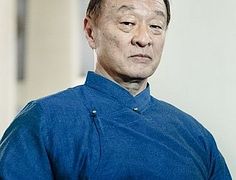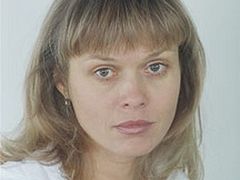In our talk Dmitry Pevtsov, a popular and acclaimed Russian film and stage artist, has once again proved true the wise saying attributed to the great Russian playwright Anton Chekhov: brevity is the sister of talent [although earlier William Shakespeare had said that brevity is the soul of wit.—Trans.]. We were given clear answers to our questions, without any lyrical digressions. He has shared his view of life with us and his opinion on how to get rid of the inner conflict between faith and play-acting (public entertainments, as the Church fathers have called it), talked on teaching activities, on new projects…
—I would like to begin our talk not with a question, but with a request: can you describe yourself today? From the perspective of past years, tell us about the roles you have played, and your life experience.
—It is impossible to answer in one or two sentences. And for me it would seem improper to describe my own personality in the genre of essay, “to pour out my heart” now. That is possible only during confession at church and nowhere else. Absolutely nowhere else.
—Then I cannot do without a question. What is now most essential in your life—in your spiritual and creative life?
—In spiritual life for me, as well as for any Orthodox Christian, the main task is the transformation of soul, my everyday efforts to get rid of sins with which I have lived for many years not regarding them as sins. And the main thing in the creative life is to find a right balance between the Orthodox worldview and our “passionate” theater art.
—It must be very difficult, as is teaching stage acting for the young generation—and that is a great responsibility as well. Three years ago you and your spouse Olga Drozdova began teaching stage acting at the Moscow Institute of Modern Art. What are your students’ achievements? What are the aspirations of today’s young people, in your opinion?
—Our students make us happy because most of them have learned to think and to feel their roles on stage. Each of them develops and extends his or her own “zone of contagiousness”. They are already loved by the audience which makes us so happy. And, what is more significant, among them there are pure souls and people of integrity. We do hope that our theater world will not be able to damage and disintegrate these natures.
—What would you recommend to young people who want to choose this path? What should they do in order to keep their integrity?
—In the actor’s profession, in my view, the most essential thing is the ability to be patient, to toil without any seen results, to wait, remaining in the best shape as an actor. No talent, no genius will establish himself or herself in this profession without this ability.
—Is the professional activity of an actor instrumental in revealing yourself, in revealing God in yourself?
—No.
—I cannot pass over the question of play-acting (public entertainments). The activity of actors is associated with the danger of spiritual deception. Many roles are dangerous for one’s spiritual state. Since an actor or actress must be able to “transform” into their characters, into their thoughts and even passions. How did you as a religious man answer these questions to yourself?
—A professional actor always controls whatever he does and what is happening to him on stage or in the film shooting. Any full transformation, complete immersion into the passions, thoughts and actions of the character you are playing would be a clinical case in psychiatry. For me, being an actor is no more than a job, a profession, a mission, so to say. Recently I have begun to choose materials for my work very scrupulously. This concerns the part, production and even author that I choose. This approach frees me from the inner conflict between the faith and play-acting (public entertainment).
—In what projects are you taking part at the moment? Which of them are of particular interest to you and why?
—In the second half of February there will be the first night of a new play at the Moscow Ermolova Drama Theater. The play will be called Don Giovanni. The plot is classical, based on the character Don Juan; the play is modern, its author is our contemporary, American playwright Don Nigro (by the way, he has written around 400 plays). The stage director is Viktor Shamirov. This work is very interesting to me. On the one hand, the play is philosophically very profound; on the other hand, it is almost a farce. And I like director V. Shamirov very much. He is so talented; besides, he is a pupil of Mark Zakharov, my teacher at Lenkom Theater. In this material I have the opportunity to tell a story about a man who, after living all his life in sin, suddenly falls in love. And his love is so strong that he changes radically—changes for the better. But there is no salvation without repentance—Don Giovanni has no time to repent and ends up in hell…
In Lenkom Theater I have a joy as well: Mark Zakharov has given me a part in a new performance of the works by Vladimir Sorokin. It so happened that I almost have not worked with the master for the past 14 years. I did take part in some of the running plays, but Mark Zakharov did not invite me to his latest works—obviously there was no need. I always take it easy and, moreover, I have always had enough work. And this season brings me such a happiness—to work together with my teacher once again.
In cinematography at the moment there is nothing special. I act in two to three films a year, but there is nothing of particular interest here to tell you about.
At present my music activities take a lot of my time: work with my KarTush band, tours, rehearsals with musicians. For example, we are going on a tour in the Primorsky (Maritime) territory for the last week of February.
—It would be interesting to hear whether your priorities in choosing parts have changed or not.
—There is one principal difference in the way I chose my roles then and how I choose them now. Several years ago my major criteria were the following: how I will play my new part, what new quality I can show off before the audience, how I will “sound” in this role and so on. In other words, I was solely admiring my own achievements.
Now the most important thing for me is what I can relate in this part, which theme I can reveal, which ideas I can share with my audience. If one or another role has no subject that interests me, I will not work with it, whatever “large professional dividends” it may promise.
—So your approach in picking materials has changed, become more profound—revealing important themes for the audience is above all. The orientation is not towards your own ego—just as Orthodox Christianity teaches us. In your opinion, what is the attitude of people from your circles (the cinema, theater and variety entertainment figures) towards God and the Church?
—The people of my circles who really mean the most to me are, first and foremost, my family members—my mother, wife, son, mother-in-law, and close friends who are at one with me with respect to the faith and God. As far as “the cinema, theater and variety entertainment figures” are concerned, there are many absolutely different people here, as in any other profession, with very diverse and opposing views on life, the world, and the Church.
—And before the end of our talk I would like to touch upon the theme of art at large… In your view, what is its task in the present-day world in general? And what should its true aim be?
—Well, I don’t know… Maybe the purpose of art is to remind mankind of the existence of higher spiritual values, to remind people of Whose image the man was created in; that all we do, feel and even think leaves a mark in our souls and in souls of other people.
Dimitry Pevstov and the Sretensky Monastery Choir sing "Gospodi Pomilui, by Hieromonk Roman (Matiushin). Stage presentation and reading of "Nesviatie Sviatie" (Everyday Saints) by Bishop Tikhon (Shevkunov).





